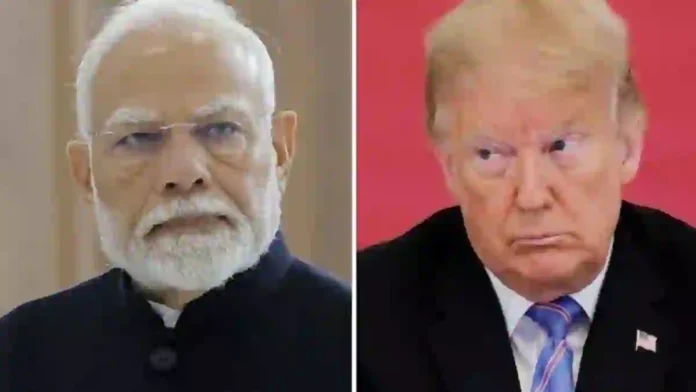In a striking departure from its traditional diplomatic style, India has openly and firmly pushed back against US President Donald Trump’s claims and manoeuvres regarding the India-Pakistan conflict, signalling a significant doctrinal shift in New Delhi’s approach to foreign policy. The catalyst for this shift was a 35-minute phone call between Prime Minister Narendra Modi and President Trump, initiated by the American side after the G7 Summit. This conversation, and the unusually candid public briefing that followed by Foreign Secretary Vikram Misri, marked a clear break from India’s customary diplomatic reticence.
Misri’s statement was stern and unambiguous: at no point did India discuss trade deals as leverage for a ceasefire with Pakistan, nor was there any proposal or acceptance of US mediation in the conflict. Modi’s message was explicit—India has never accepted, does not accept, and will never accept any form of third-party mediation on Kashmir or its core security interests.
Read- India’s Hypersonic Glide Missile To Be Ready In 2–3 Years: DRDO Chief
This assertive stance was prompted by a series of provocations. Trump had repeatedly boasted in public about his supposed role in “stopping” a nuclear war between India and Pakistan, claiming he used trade as a lever to force India’s hand.
These assertions, amplified by the US media and seized upon by Pakistan, created a narrative that undermined India’s agency and strategic autonomy. Despite these provocations, India had, until now, chosen to respond with restraint, adhering to a diplomatic culture that values ambiguity, subtlety, and process over confrontation.
The tipping point came when Trump attempted to orchestrate a meeting between Modi and Pakistan’s army chief Asim Munir at the White House—an unprecedented and, from India’s perspective, deeply inappropriate move.
This attempt to place the democratically elected Indian leader at the same table as a military chief from an adversarial nation, especially one recently implicated in a major terror attack on Indian soil, was seen as a serious affront to India’s dignity and red lines. It reflected a lack of understanding of India’s core national interests and its longstanding opposition to third-party intervention in its disputes with Pakistan.
In response, India abandoned its usual diplomatic ambiguity. Misri’s public statement not only refuted Trump’s claims but also pre-empted any mischaracterization of events by the US administration. This proactive communication strategy was a clear signal that India is no longer willing to tolerate misrepresentations, even at the risk of straining ties with Washington.
Modi’s subsequent remarks at the G7, where he criticized the West’s selective approach to sanctions and support for states that sponsor terrorism, further underscored New Delhi’s irritation and resolve.
This episode highlights a new phase in Indian diplomacy—one that is more direct, transparent, and willing to risk short-term friction to protect long-term strategic interests. The willingness to publicly contradict the US president, knowing it could jeopardize sensitive trade negotiations, demonstrates India’s growing confidence and its prioritisation of core national interests over transactional gains.
Modi’s plain-speaking with Trump represents more than a personal rebuke; it marks a doctrinal shift in India’s diplomatic posture. New Delhi is now prepared to assert its narrative forcefully, defend its red lines openly, and reject external interference in its internal and regional affairs, even when dealing with the world’s most powerful nation.
This shift, rooted in a broader context of rising Indian power and widening asymmetry with Pakistan, is likely to have lasting implications for the conduct of Indian foreign policy.
Agencies




